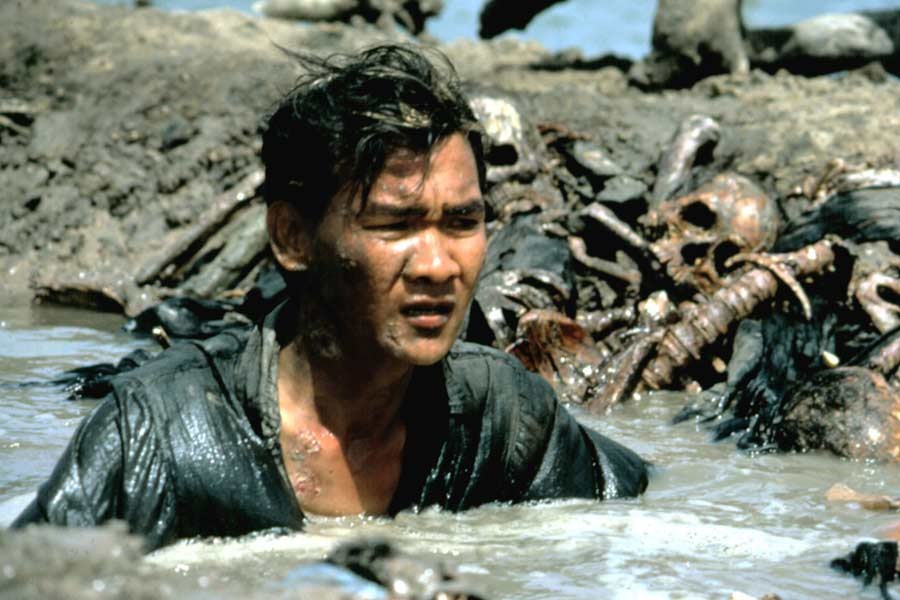
Let’s not kid ourselves, winning an Oscar is a life changing experience. As wonderfully portrayed in George Cukor’s A Star is Born, an individual actor can go from a virtual nobody to an overnight sensation within seconds.
Yes, the Academy Awards seldom reflect actual quality, and yes the AMPAS (especially today) fail to represent the voice of our diverse generation, but there’s no denying the massive amounts of exposure an individual can attain following those five short words: “…and the Oscar goes to…”
Already established stars are granted more autonomy and clout. In the Studio system it allowed them to request higher pay, select scripts and demand top billing. Stars like Janet Gaynor, Bette Davis, Joan Crawford, Clark Gable, James Stewart, Marlon Brando, and a pantheon of others had already established themselves as icons of the silver screen prior to their win.
Being recognized by the Academy propelled them to an even higher stratosphere of stardom. Suddenly, they went from being referred to simply by name to “Academy award-winner” for the rest of their lives and beyond. In the movie industry it is a legacy akin to that of a knighthood.
Subsequently — especially after the Academy Awards became as well regarded as they are today — more relative unknowns achieved fame and recognition.
Julie Andrews had never starred in a movie prior to Mary Poppins, a film which she ironically only accepted because she was turned down for My Fair Lady, having not yet become a big enough star. Christoph Waltz was an unlikely person to become a household name; he was simply offered the perfect role in Hans Landa from Inglourious Basterds, one the Academy couldn’t help but reward.
But, every so often, the sheen doesn’t stay on the statuette — for some, Oscar night is just another night. They win the prize, have their fifteen minutes of fame, go home and wake up the next day to find that career-wise nothing has changed. And we’re not talking about actors like George C. Scott who clearly wanted nothing to do with the institution. These are actors for which, by one unfortunate reason or another, the Oscar win itself did not have a lasting impact.
We would be remiss if we didn’t include our honorable mentions. After winning his Best Supporting Actor Oscar for West Side Story in 1962, George Chakiris became an in demand actor throughout the ‘60s. His star fell somewhat in the ‘70s and ‘80s as he became relegated to TV and while he is still alive and not “officially retired” his last acting role was in 1996 and he is now better known as a jewelry designer.
Tatum O’Neal became a sensation after being crowned as the youngest competitive Oscar winner, earning more money than any previous child star for her next movie Bad News Bears. Unfortunately, after a few mediocre successes throughout the ‘70s, Tatum co-starred in Little Darlings (1980) to disappointing box office and consequently only starred in five more movies in the following twenty-two years.
Finally, James Dunn, who won for his work in Elia Kazan’s A Tree Grows in Brooklyn (1945), never managed to get another right role and retired to television in the ‘50s and beyond, returning to the big screen only twice to no further exposure.
10. Josephine Hull for Harvey (1950)
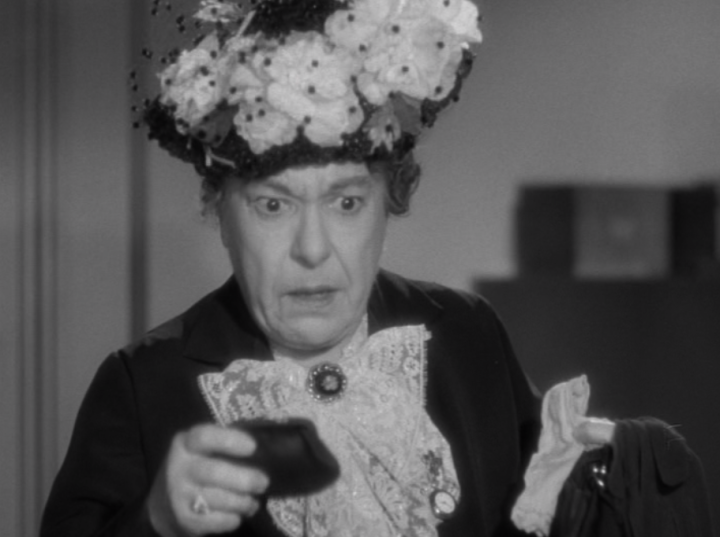
Josephine Hull may not be the most recognizable of names for film lovers but theatre fans in the early 20th century were very familiar with her work. She starred in the original production of You Can’t Take it With You (and probably would have been in the Best Picture-winning film had the theatrical run allowed for her participation) as well as a slew of other big Broadway productions through the 1920s and 1930s.
Luckily, she was able to reprise some of her stage characters with Frank Capra’s Arsenic and Old Lace and her eventual Best Supporting Actress Oscar win, for her wildly comedic performance in Harvey. Hull habitually excelled in playing matronly characters and no other performance showcased this better than the overwrought sister to Jimmy Stewart’s Elwood P. Dowd.
So impressive was her performance that she managed to briefly steal the spotlight from All About Eve and Sunset Boulevard, leaving Celeste Holm, Nancy Olson and Thelma Ritter (her first of six losses) shut out. Oh, and she did this at the age of seventy-four, making her the oldest Oscar winning actor — a record held for twenty-five years.
On one hand it could be considered a legacy win for a woman who was over forty years into her career. On the other hand, between 1929 and 1951, she only starred in six feature length films. Not six months after being handed her Oscar statuette, Josephine Hull made her final big screen appearance.
Logically someone three quarters of a century old would hang up their hat in retirement, but Hull continued to work steadily in theatre and TV through 1955. Perhaps the right roles just weren’t available in Hollywood for a woman of her age, but it is somewhat dubious that she starred in only one (unsuccessful) film after being so highly distinguished by her peers.
9. Mo’Nique for Precious (2009)

This one might be too soon to include but it has been six years since Mo’Nique deservedly won her Oscar. And how many people can seriously name anything she’s appeared in since? She had a five year stretch where she completely avoided being an actor. Yes, her relatively successful talk show kept her busy through 2012, but it’s not as if she didn’t care about her win, she made reference to her Oscar on the show itself.
This is a woman of massive talent. She can switch from serious to comedic with effortless ease and yet it took five years for Mo’Nique to star in anything of any note — a movie called Blackbird, which didn’t open to more than thirteen theatres and took in $78,000 at the box office. Luckily, we got to see her raw talent on display just last year in Bessie; a made-for-TV movie that garnered a large audience.
And while a successful HBO TV movie is nothing for an actor to scoff at these days, when comparing Mo’Nique’s Supporting Actress win to other winners in that category it’s hard to argue that her career isn’t as fruitful as Cate Blanchett, Rachel Weisz, Tilda Swinton and Anne Hathaway — to name just a few. Here’s hoping that her critically praised performance in Bessie lands her more opportunities in the future.
8. Katina Paxinou for For Whom the Bell Tolls (1943)
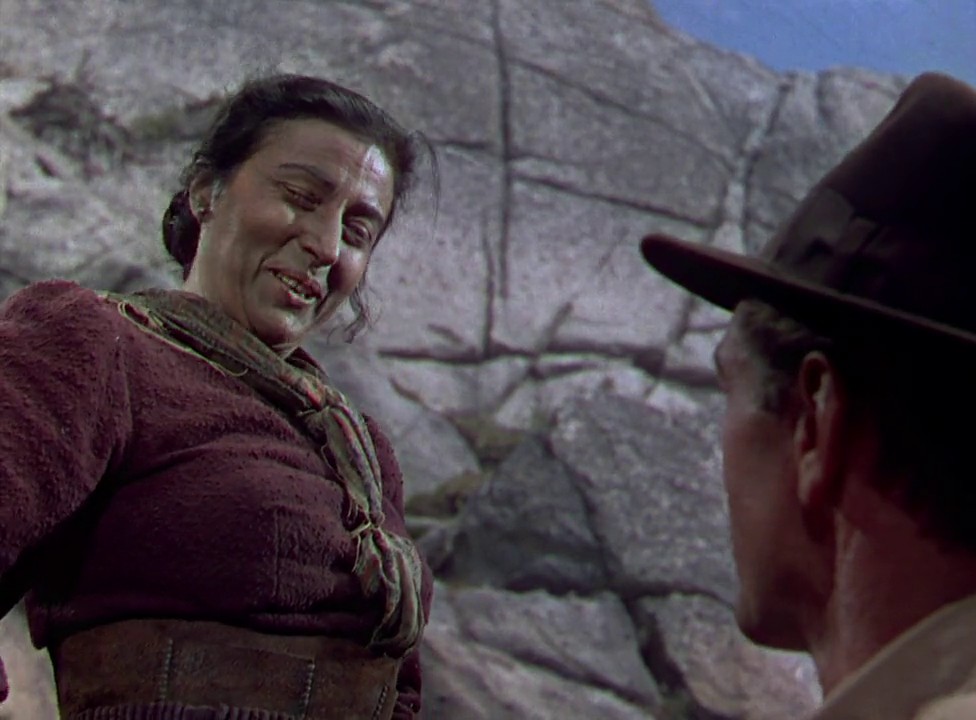
For Whom the Bell Tolls was the biggest film of 1943. It was headlined by Gary Cooper, one of the biggest money makers of the time, and Ingrid Bergman in the same year she starred in Casablanca. And yet, Katina Paxinou, towered over both of them as a brash, ballsy and homely gypsy, stealing the spotlight from the two stars.
In an uncharacteristic move for Hollywood, Paramount Pictures cast the Greek stage actress in her film debut, despite her nontraditional Hollywood appearance. The film was nominated in all four acting categories at the Oscars, yet Paxinou was the only cast member to walk away with a statuette.
For all intents and purposes, it should have been the start of a powerful career. If Paxinou’s performance in For Whom the Bell Tolls is any indication, she could have become Hollywood’s go-to character actress. She oozed charisma, was a supremely natural actress and could have easily played any exotic European role.
If Maria Ouspenskaya (another European actress of the time) could make a career being the industry’s older European woman, then surely Paxinou could have found some fascinating roles.
However, after appearing in For Whom the Bell Tolls, Paxinou only made seven American films in the subsequent seventeen years, none of which made much money domestically.
Paxinou somehow just couldn’t land the right role again and consequently returned to Greece in the 1950s where she started the Royal Theatre of Athens with her husband, Greek director Alexis Minotis. Unfortunately, Hollywood would not see the actress after 1959, though she did continue to sporadically work in Europe until shortly before her death.
7. Tim Robbins for Mystic River (2003)
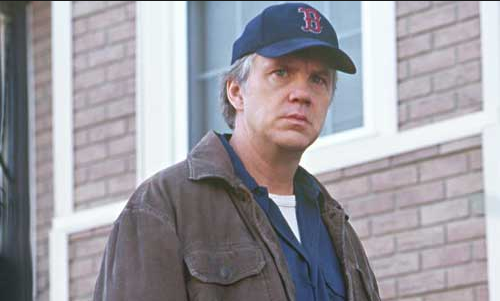
Making his big screen debut in a “Brat Pack” movie in 1984, Tim Robbins carved out a niche for himself as a “quiet everyman” who blends well into whatever role he takes on.
Largely considered robbed of a nomination after his towering performance in Frank Darabont’s adaptation of The Shawshank Redemption, Robbins was finally nominated and won for his Supporting Actor performance in Mystic River. Yet, Robbins made an appearance the following summer in War of the Worlds and everyone promptly forgot he was in it.
After winning the Oscar, the only movie Robbins starred in which earned over $30 million was the turgid mess that is Green Lantern in 2011. More recently relegated to playing bit parts in small films and cable television, Robbins work output has slowed considerably in the last few years though he does still work, and while unlikely, it is always possible that he could still make a comeback.
6. Roberto Benigni for Life is Beautiful (1998)
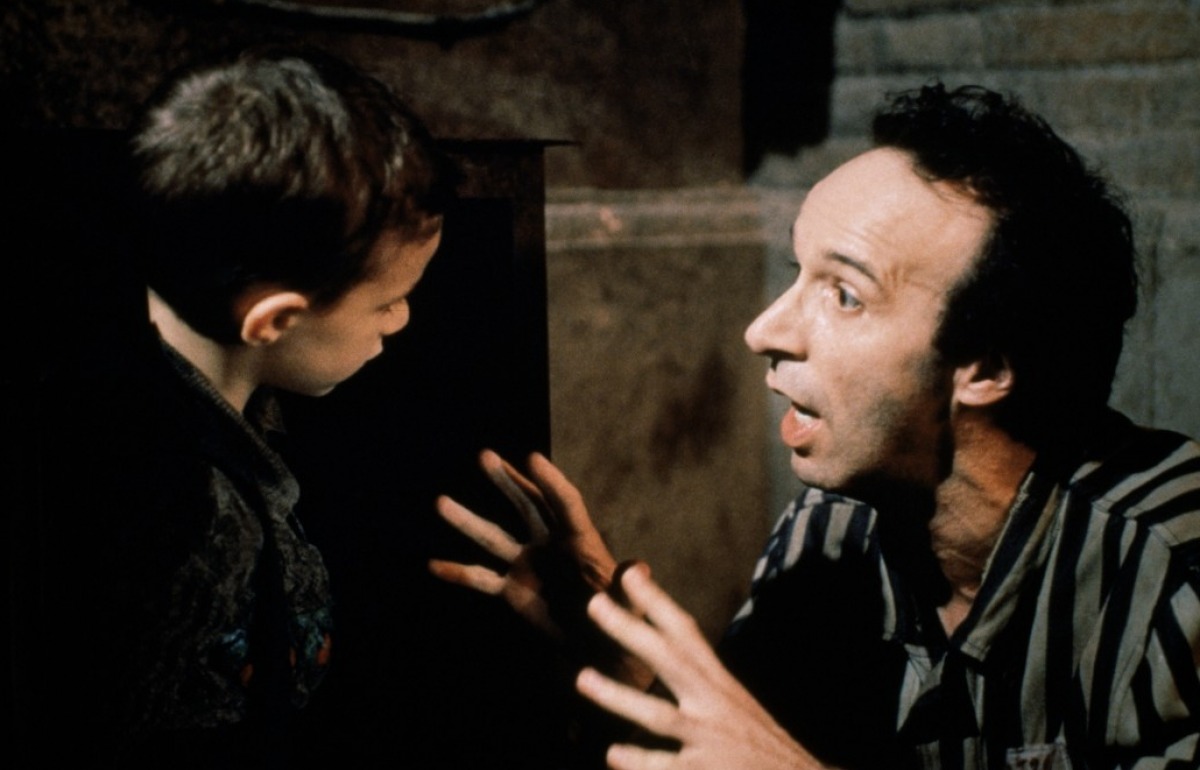
We won’t hide the fact that for us Roberto Benigni taking the Oscar over Ian McKellen’s triumphant portrayal of James Whale in Gods and Monsters isn’t a bitter pill to swallow. But we’ll try to resist being swayed by our own personal bias; truthfully, Roberto Benigni’s performance in Life is Beautiful (please never watch the dubbed version) is fully realized and a dazzlingly human portrayal of one man’s painful attempt to mitigate the horrors of the Holocaust for his impressionable son.
In actuality his performance is exactly the sort of thing the Academy goes for. Benigni is tear jerkingly optimistic in the kind of movie the Academy loves to reward and despite being a foreign language film, he managed to beat Tom Hanks’ performance in an even more celebrated WWII movie.
Thanks to his antics at the awards ceremony Roberto Benigni became a household name and an overnight sensation. Having acted in Italy since the ‘70s, Life is Beautiful was his first international breakthrough.
Not having much of an English vocabulary it wouldn’t have felt right for Benigni to become a Hollywood actor. Having said that, his next project (not including the horrific Asterix and Obelix vs. Caesar) was the miscalculated, certified 0% on Rotten Tomatoes, six-time Razzie nominated Pinocchio, for which he won the award for Worst Actor of the year.
Following that he wrote, directed and starred in The Tiger and the Snow, which was both a critical and box office failure. That was in 2005 and since then he has had only two acting credits, most notably in the forgettable Woody Allen film To Rome With Love. He currently has no upcoming projects.